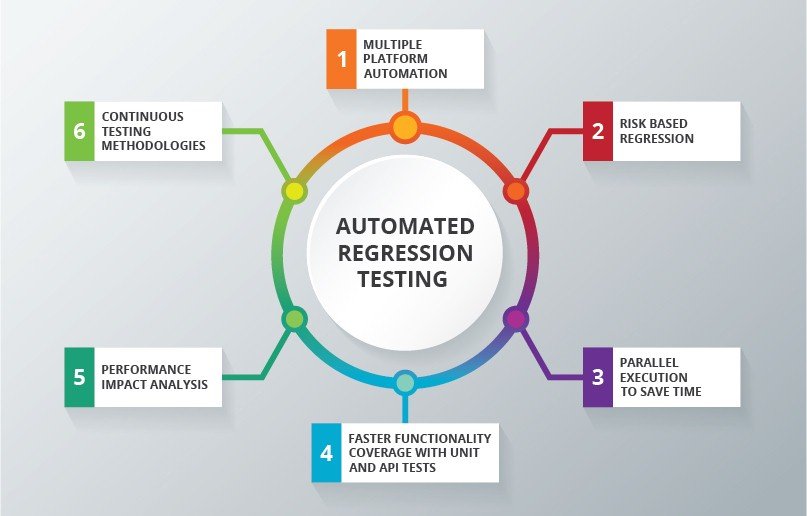5 Technical Factors Testers Should Know About Regression Testing

Last updated on October 15th, 2022 at 07:20 pm
As enterprises are realizing the importance of quality assurance of their applications, they also realize investing in software testing. Gone are the days when developers and QA testers worked in isolation. They work as part of a single team, and ensure that when a software app undergoes code change or addition of features are made, there is no effect of the application or other functions of the application. They utilize software testing tools to ensure that software apps meet user requirements.
Software testing performed to ensure that new code/features do not affect app functionality include unit regression testing, partial regression testing and complete regression testing. In unit regression, testers test a code in isolation, whereas in partial regression, it is tested if the code is performing fine when integrated with unchanged units. In the complete regression testing, the complete module is tested for any kind of effects on the application.
Retesting is another type of software testing, where when testers identify a defect and ensure that it is fixed, they undergo another testing process to ensure that the app is performing as expected after resolving the issue. There are some technical concepts that testers should know about regression testing, that are as follows:
Test Cases and Its Selection
In case of regression testing, testers should be very careful about test cases. They should be checked for defects frequently including boundary values, simple test cases, sample of passed/failed test cases, etc. However, in case of retesting testers should only execute previously failed test cases.
Scenarios for Regression Testing
The scenarios for regression testing should be defined beforehand. They should be done whether a functionality is added to an app, or there are some defects that were resolved in an app.
Automated and Manual Testing Tools
There are a number of automated and manual software testing tools that testers can use for regression testing. Testers should use modern tools to ensure that there is no compromise on the quality of the software application.
Challenges in Manual and Automated Testing
Testers face various challenges when carrying out manual and automated tests. These challenges include:
- Reuse of test scripts
- Testers focus on easy bugs
- Testing for large projects, etc.
Regression Testing in Agile
In today’s environment, enterprises adopt agile development methodologies for the software development process. Testers take an interactive approach, and regression testing plays an important role in quality assurance. Large enterprises add functionalities in the applications and hire software testing companies to ensure that these functionalities work as they are expected to. They are also equipped with the best software testing tools so that they can make a difference and set apart from their competitors.
The above technical factors testers should know about regression testing which will help them in improving software testing processes. Regression testing is integral to ensure that the new features or code has not affected the other functionalities of the application.

Software Testing Lead providing quality content related to software testing, security testing, agile testing, quality assurance, and beta testing. You can publish your good content on STL.




